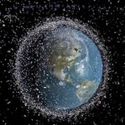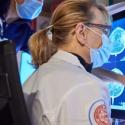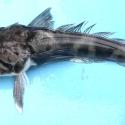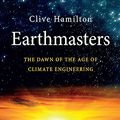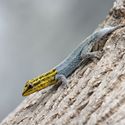Science Is Essential
Science touches so many aspects of modern life that it's hard to keep up. Through our programs and this website, Science for the Public provides up-to-date information about scientific innovations, discoveries, and issues that are shaping modern knowledge.
Coming Events
No events are scheduled for June or July
Recent Events
Space Debris Alert!: The Potential Impact on the Ozone Layer and Earth’s Climate
05/27/25 (rescheduled from April) Thousands of satellites orbit Earth. At the end of their missions, they drop into and burn up in the stratosphere, depositing ash that contains oxides and pollutants that are affecting both the ozone layer and the planet's climate. Atmospheric scientists are working to analyze the aerosols and their worrisome impact. Daniel Cziczo
The Brain-Computer-Interface Paradox
05-20-25 For individuals paralyzed by injury, stroke or ALS, brain-computer-interface (BCI) devices can enable movement and even speech. However, there are concerns: specifically, that such technology could be developed for mind control. Lukas Meier
Cancer Research: How It Works and Why It's Crucial Today
04/08/25 Numerous types of cancer are increasing today and scientists are trying to identify the causes. That's why cancer research is one of the most important concerns of modern science. We learn how the research is done and also why federal funding for this work is essential. Gerald Denis
DDT Poisoning
A poison that was initially considered a solution to disease-bearing insects and harmless to humans and animals became lethal
Resistance to New Ideas
Many of the most important advances in scientific understanding were initially rejected or ignored.
Life: Origins of Life
The necessary ingredients and conditions; formation of life's molecules; Last Universal Common Ancestor (LUCA) ....
Featured Items
Using Gravitational Lensing to Detect Dark Matter
01/14/25 Dark matter accounts for some 27 percent of the universe but is invisible. One promising technique to reveal it is the analysis of gravitational lensing that very occasionally aligns galaxy clusters. Jacqueline McCleary
Is Earth Exceptional?
02/18/25 Is there life beyond Earth? So far, despite the discovery that there are billions of planets in our galaxy, and our increasingly sophisticated probes for life, we still don’t know. Life and the conditions for its emergence are both very complex phenomena. Mario Livio
Heads Up! Surprising Stats
Science for the Public is committed to improving public knowledge of science and public appreciation for the contributions of science to social progress.
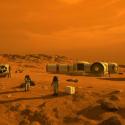
Going to Mars? Better Take Some Gravity
09/19/23 WGBH Forum Network webinar 11:30 EDT There is plenty of hype about space travel and even colonizing planets like Mars. We might need to know about the effects of zero-gravity on the human body. James Lackner

Origami: Art and Science
09/08/15 Mathematician L. Mahadevan describes how nature, science and art intersect. It will change your entire perspective.
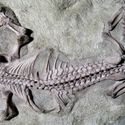
Mass Extinctions
04/09/19 What caused Earth's five mass extinctions --and most important--are we headed for a sixth? Andrew Knoll
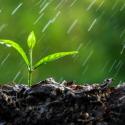
Soil: The Skin of the Earth
10/06/15 Soil is essential for life on Earth, and life greatly enriches soil. How did the pedosphere evolve, what makes it dynamic, and how can we save it?,,,,,,,,,,...
Andrew Kurtz
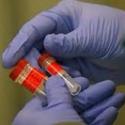
Who Funds the FDA - And Why Does It Matter?
06/07/22 An increasing percentage of the Food and Drug Agency's funding comes from the pharmaceutical industry. How does this arrangement affect the agency in general and the approval of new medications in particular?
Aaron Kesselheim

The Bionic Leaf: Clean Energy for All
08/02/22 A unique innovation based on photosynthesis, the bionic leaf can potentially produce energy and fuel inexpensively --and in a localized manner. Daniel Nocera
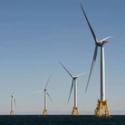
The Great Potential of Offshore WInd Farms
05/07/19 How effective are offshore wind farms in nations that have developed them, and why has the US been especially slow to adapt such an important energy resource?
Andrew Myers
Today's Featured Contributors
Featured Author
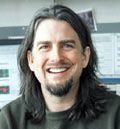
John Quackenbush, Ph.D.
A very engaging discussion of the human genome project by one of the researchers involved
Featured Guest

Miaki Ishii, Ph.D.
A seismologist whose research is on the cutting edge of investigations of the deep Earth
As a world society, it seems clear that we have arrived at a point in our history when there must be a major increase in the capability of ordinary people to cope with the scientific and technological culture that is shaping their lives and the lives of their children.
—Leon Lederman, Nobel Laureate in physics

